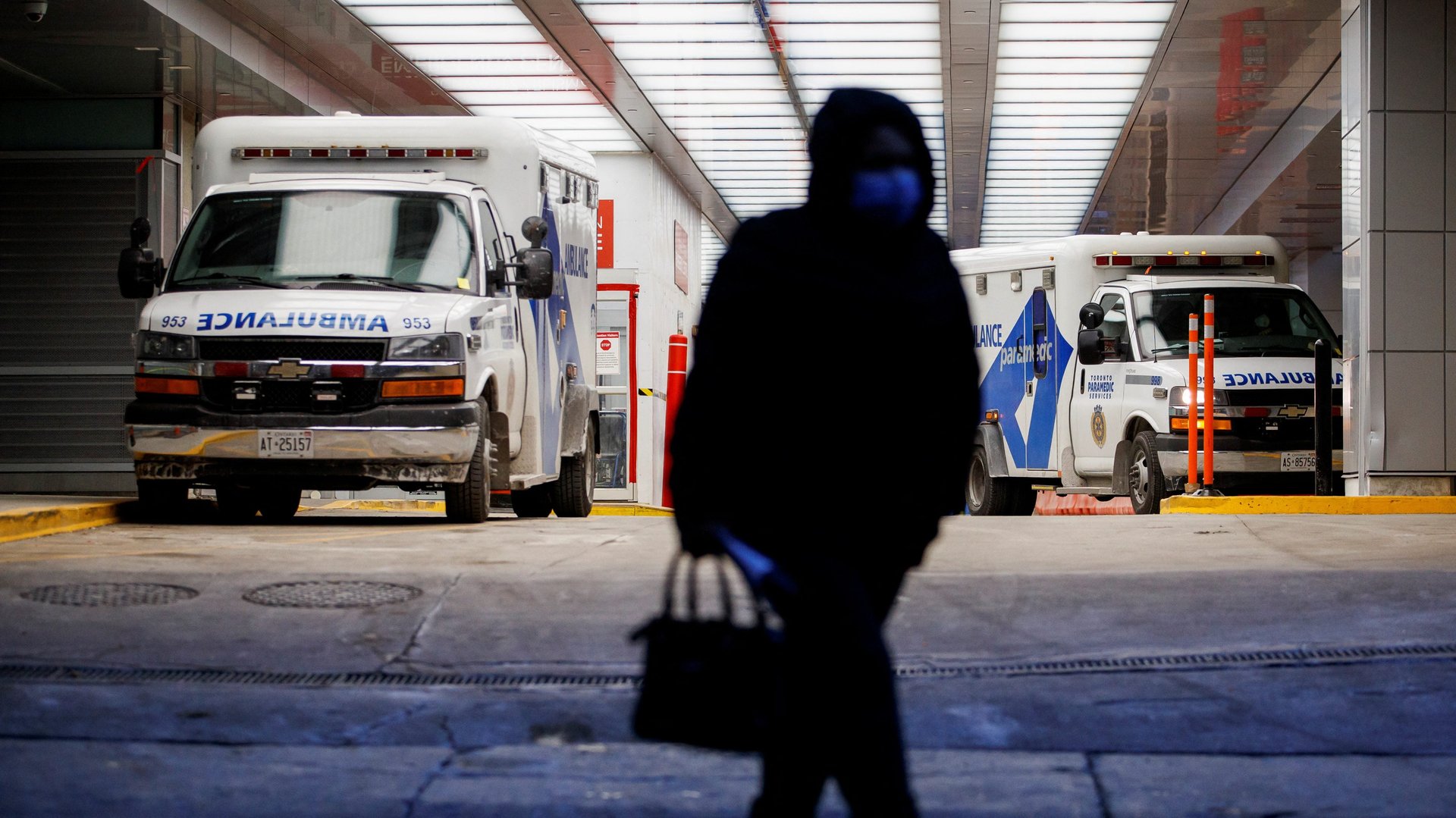A quarter of US hospitals are critically short of staff because of omicron
While previous covid waves were marked by shortages of equipment like ICU beds, ventilators and dialysis machines, the omicron wave is distinguished by a shortage of workers.


While previous covid waves were marked by shortages of equipment like ICU beds, ventilators and dialysis machines, the omicron wave is distinguished by a shortage of workers.
About 24% of the 5,000 US hospitals reporting their staff status to the US Department of Health and Human Services (HHS) have a “critical staffing shortage,” according to data released Jan. 8. Another 100 hospitals are anticipating shortages within the week. This is the largest share of hospital shortages since the HHS began releasing the data in November 2020.
Omicron’s high transmissibility has meant that healthcare workers are contracting covid, or required to isolate due to exposure, at rates that are straining the ability of some hospitals to operate, further exhausting staff who aren’t out sick.
At the same time, according to the HHS, over 103,000 people are currently hospitalized for covid, the highest number in nearly four months. Hospitals are directing labor and resources toward treating covid patients, and away from other functions, like non-emergency surgeries.
To help alleviate the worsening labor shortages in hospitals, in December, the Center for Disease Control and Prevention loosened its requirements on healthcare workers, allowing hospitals to call those who tested positive or were exposed back to work if they have no symptoms. Previously, the CDC recommended that infected healthcare workers isolate for 10 days before returning to work.
Several states have deployed the National Guard to hospitals, who have taken on tasks like driving, food service, security or administering covid tests.
Healthcare staff shortages are accumulating
The first wave of covid in 2020 resulted in a steep drop of healthcare workers due to death, attrition and early retirement. Nearly two years later, the number of healthcare employees hasn’t recovered to pre-pandemic levels. Before the pandemic, there was already a shortage of registered nurses, with the Bureau of Labor Statistics estimating a shortfall of about 1 million nurses by 2030.
Global shortages in the wake of omicron
In the UK, the military has stepped in to fill shortages at London hospitals, including some doctors, though most soldiers tasked with “conducting basic checks,” according to the Ministry of Defense, will not have medical training. Hospitals in other parts of the UK anticipate needing military help as shortages worsen. In Spain, some pharmacies have started to report positive covid cases to the national health system, alleviating some of the pressure of the task from hospitals. In Israel, the government is testing a fourth shot for medical workers as antibodies declined among those who received their first boosters in August.
While many nurses will recover from the omicron infections keeping them out of work now, the pandemic has exacted a high, longer-term toll on the profession in deaths and burnout. Globally, the World Health Organization estimates that 115,000 nurses have died from covid, and according to the International Council of Nurses, a Geneva-based group that represents 27 million nurses globally, the rate of “intention to leave” nursing within a year has doubled.